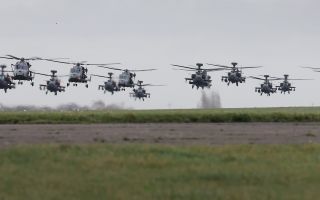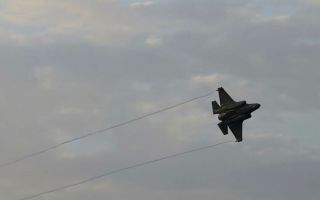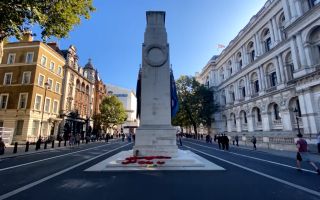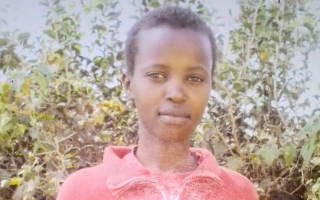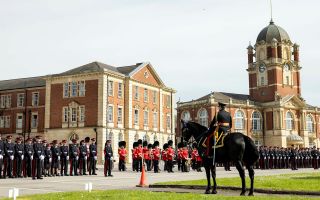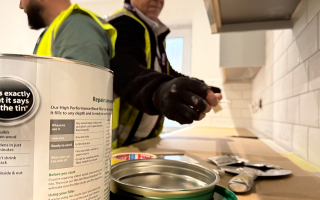Comment: Labour's Divided Defence
After three days of avoiding difficult and potentially damaging conversations on defence, Labour's fragile peace gave out on the final day of its conference.
Defence dominated on and off the conference floor. Delegates overwhelmingly passed an emergency motion that could affect whether the RAF carries out air strikes in Syria.
The trade union Unite put forward the plan that calls on Labour MPs to only support British bombing if there is unambiguous UN authorisation. It also requires only direct Islamic State (IS) military targets being chosen, a proper EU plan for refugees, and for diplomacy to be put ahead of military action.
It doesn't bind Labour MP's, but it may be hard for them to ignore after a conference where the overwhelming talk has been of 'new politics' and listening to party members.
The Government, which wants and will probably need cross party support, will be looking at these tests closely. Unless it can meet them, a Commons vote within the coming weeks looks pretty unlikely.
This was a clear message from the conference floor broadly showing unity in the party base, but it came just hours after the Shadow Chancellor, John McDonnell called for MPs to have a free vote based on conscience if they were asked to decide on Syria strikes.
The real difficulties developed elsewhere, in the media studios and on social media.
After all the talk of 'agreeing to disagree' on Britain's nuclear deterrent Jeremy Corbyn faced a 'killer question' on BBC Radio 4. If he became Prime Minister would he ever press the nuclear button? “No” he replied. Nuclear weapons he later said “didn't do the USA much good on 9/11”.
After days of tempering their words and focussing on an 'open-facing' conversation, some in the Shadow Cabinet seemed to think Mr Corbyn had broken their peace deal.
Shadow Defence Secretary Maria Eagle made clear she was unimpressed, telling the BBC "I don't think that a potential prime minister answering a question like that, in the way in which he did, is helpful."
She's supposed to be leading a party policy review, something she says he has now "undermined to some degree".
Then in comes the Corbynite Shadow Development Secretary, Diane Abbot, on Twitter... “Surprised that Maria Eagle criticises JC for making his position clear on Trident nuclear weapon system”
Hilary Benn, Andy Burnham, John McDonnell have all stuck their personal oars in. Collective Shadow Cabinet responsibility has gone out of the window and exposed the simmering tensions that they had been working so hard to avoid.
Until now Labour appeared to have successfully delayed dealing with the fact it's leader was at odds with a key defence and security policy. They would have hoped to delay it for months rather than days.
More: The Nuclear Promise - The Letters Of Last Resort
This is a question that will keep coming back to Labour, its opponents will contend that Jeremy Corbyn's assertion that he “might have to live” with a pro-trident policy is not good enough.
After all, if a country's leader is not prepared to use nuclear weapons in any circumstance are they any deterrent?
This conference has resolved none of Labour's defence questions, the dramatic collapse of discipline on the final day has demonstrated they are the most divisive that it faces.
Watch: Full Forces TV interview with the Shadow Defence Secretary Maria Eagle MP


